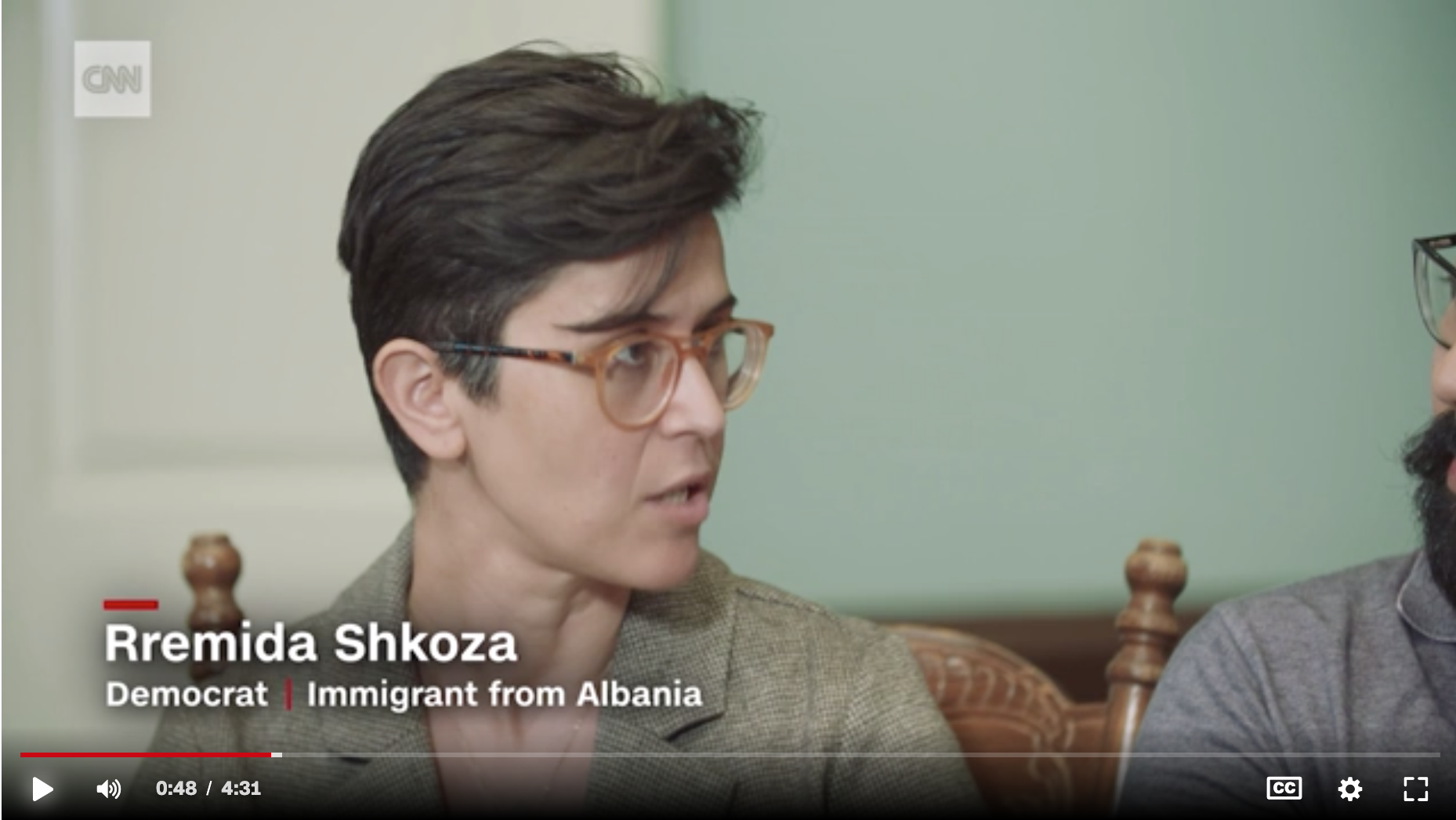By Serena Witherspoon. Reprinted from Huffington Post.
I ride my bike to school. When you enter Sproul Plaza (the entrance point at the South Side of the UC Berkeley campus) there is clear marking that says to get off your bike, it is a walking zone. If campus is crowded I walk so I’m not disrupting the flow of traffic by weaving around people, but if campus is relatively empty I cut down on time and ride my bike through.
I arrived pretty early in the morning on the first day of school this Fall (2017) at the same time as one other biker. Campus was empty so we both rode through Sproul until three UC Berkeley police officers yelled at us to get off our bikes. We came to a stop and walked to lock up. That was the end of the interaction for us— myself a light skinned Black woman and the other biker a white woman. I proceeded to watch the police officers yell at five other students to abandon their bikes, all of white or Asian descent, all verbally harangued. One student was on a scooter and wearing headphones so he could not hear the police yelling at him to walk, he scootered through and the officers laughed it off. I sat down to do some work and looked up to see them issuing some kind of a slip to a young dark skinned Black man with bike in hand. Only one out of seven students that I saw were physically stopped, the dark skinned Black man. I ran after him as I saw him turn around to leave the campus. I asked him what they had said. They had issued him a slip that said he could not return to campus for seven days. I then went to talk to the police officers and asked why they had only stopped him, only told him to leave campus, and only told him he could not come back to campus for a week. They replied that he was the only one who didn’t get off his bike when asked. I replied that they had laughed it off when the other student hadn’t heard them and just scootered by. They told me that when that student came back they would issue him a ticket as well. I walked away. They will not issue that student a ticket, he is on the Northside of campus by this point and they have no intention of finding him.
Police presence is terrifying for Black and Latinx students. Images of police brutality against Blacks and ICE raids on undocumented students pervade our consciousness. For us, police do not “protect and serve” rather they brutalize, intimidate, and tear apart our families and communities. This week at UC Berkeley the administration is spending 600,000 dollars a day to fill the campus with police officers in full riot gear as a response to the conservative provocateurs who were expected to come for ‘Free Speech’ week. Campus does not feel safe. I have listened to many Black and Latinx students who have not attended classes in order to avoid coming in contact with police officers. I know people who are still waiting for their financial aid to be dispersed while the administration instead chooses to drain hundreds of thousands of dollars promoting an environment hostile to students who were promised a home and a safe space for education.
Yesterday I had to be on campus during a bomb threat. While I was sitting outside a police officer with a dog approached me without saying a word, stood in front of me without making eye contact, gestured for his dog to hop up on the ledge where I was sitting, and proceeded to have the dog crawl across me. He walked away without acknowledging me.
This week I had a Living Room Conversation on ‘race and incarceration‘ and one of the questions asked us to discuss what contributes to our own sense of safety in our surroundings. People shared stories of times when they had seen Black men on the street and felt scared because of their actions or how they looked. The stereotype of who incites fear in us is so often Black men in hoods at night. Mine too, includes this image but the Black man is not where I derive my sense of unsafety. The Black man is my brother. He is a 6”2 Black man who wears hoodies and walks home after work late at night. My fear is derived from the police report that I get so frequently that let’s me know that they are looking for a suspect that is a 6”2 Black man in a hood with brown hair and brown eyes and that he is armed and dangerous. It is the reality that my brother could be the next death as a result of police brutality, that some of the best scholars I know avoid going to class out of fear of deportation, it is a young Black man being told that he is not welcome at a place of higher education for a week because he was riding his bike. Safe surroundings for me do not include riot gear, guns on hips, concealed eyes, and dominating stances. Safety is not the police.
Serena Witherspoon studies Sociology at UC Berkeley. Her research explores the relationship between the education and carceral systems. She is the assistant director of the Stiles Hall Experience Berkeley Transfer program. This program aims to increase the amount of Black, Latinx, and Native American students on the Berkeley campus through mentorship and community building. She works with Living Room Conversations to broaden and deepen transpartisan communications.


